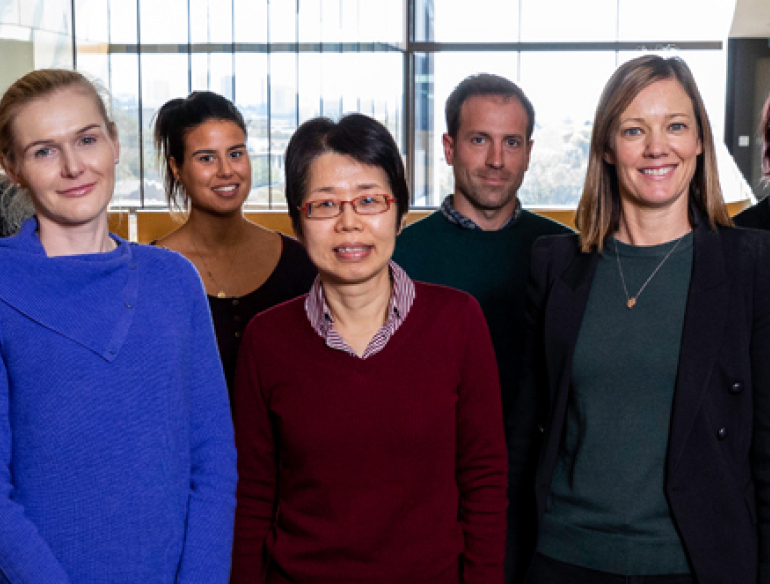Meet the hardworking people who coordinate our world-leading clinical research
The Kirby Institute is a world leader in clinical research, and has been coordinating large-scale trials, in Australia and internationally, for more than 25 years. Our clinical research portfolio spans trials of treatments for HIV, viral hepatitis and sexually transmissible infections and we work closely with partners from a range of sectors, along with affected communities and individuals, to ensure the safe, practical and effective roll out of advances in treatment and medications.
Clinical research bridges the gap between the science of treatment development, and its implementation in the real world, and the innately collaborative approach to this work requires the leadership of skilled coordinators bringing multiple stakeholders together. Sally Hough runs the ADVICE trial, an international collaborative project between Australia and the USA. “I work closely with the communities impacted by the trial, our academic collaborators, lab scientists, statisticians, data managers and trial coordinators all over the world,” she says. The project is trialling the effect of an anti-clotting medication with people living with HIV who are on treatment, with the aim of reducing the blood clotting, immune activation and inflammation that can lead to cardiovascular disease and cancers. If successful, this study has the potential to directly improve the longer-term health outcomes of people living with HIV. “It’s these collaborations that allow us to produce cohesive and high-quality research,” says Sally.
“Running a clinical trial requires an extraordinary amount of team work, from the healthcare practitioners on the ground, to the staff and researchers at the Kirby,” says Marianne Byrne, who coordinates the Kirby Institute’s SToP-C trial, a world-first investigation of hepatitis C treatment-as-prevention in prison populations. But she also points to the importance of trial design, to make it a process that encourages participation. “If implementation of the trial is convoluted, who would want to participate in that?”
Barbara Yeung coordinates the EPIC-NSW trial, the world’s largest implementation trial of the HIV prevention pill, preexposure prophylaxis (or PrEP). She also agrees that collaboration is a major part of a clinical trial’s success, and that it is the Kirby Institute’s approach to working with affected communities that makes our work unique. “The Kirby is well known for conducting research with disadvantaged populations,” says Barbara. “EPIC-NSW goes further than proving PrEP works at the individual level. It looks at population-level impact, and examines whether rapid, targeted, and high-coverage rollout of a medication like PrEP in an epidemic cohort would reduce transmission and infection rates at a large scale.”
It is the ability to achieve real-world results that those who work in the field find rewarding, and with EPIC-NSW already reporting reductions in the transmission of HIV among men who have sex with men in NSW since the trial began, the impact is already being felt. “Clinical research is the way to enable advancement in treatment, disease prevention, and improve people’s lives in general,” says Barbara.
Marianne has a similar experience working with prison populations, particularly in a time where hepatitis C medication has advanced to a state that is well tolerated, highly curative, and widely available in Australia, thanks to its listing on the Pharmaceutical Benefits Scheme (PBS) in 2016. “Being involved in clinical research, particularly in the hepatitis C field, is very exciting,” she says. “When the data reports highlight the number of cured participants, it is incredibly satisfying that people are getting something back from their participation.”
Of course, the ripple effect of a successful trial is felt beyond the individual, and Kirby Institute clinical trials ultimately aim to impact access to prevention and treatments for entire populations. Access to good health is made possible thanks to the round table that our clinical trials coordinators facilitate. “Working in clinical research provides a wonderful opportunity to work with a huge range of professionals from across the globe in different health sectors to be at the forefront of research that ultimately aims to help improve the quality of people’s lives,” says Sally. “It can offer new medicines, new ways of using existing medicines, and help change health policy for the better.”
